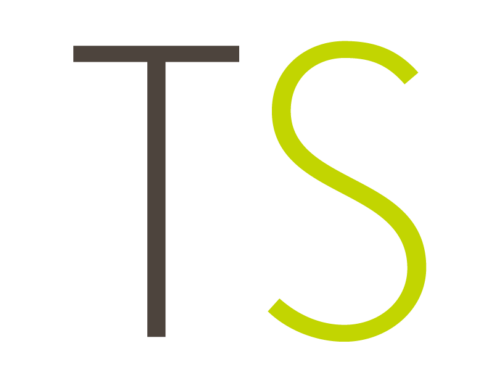Immigration Round Up : COVID-19, the new post-Brexit Immigration System and more
As the impact of COVID-19 continues to affect our day-to-day lives, we take a look at the effect the pandemic has had on UK immigration and review the Home Office’s latest COVID-19 guidance. We also look at other recent developments in immigration law including the new points-based system (set to commence on 1 January 2021) and the introduction of the Global Talent visa.
If you have any questions or require any advice in relation to any of the topics covered in this bulletin, then please contact a member of our Immigration team.
Click the links to jump to sections:
Coronavirus (COVID-19) and Immigration
Extending your visa
Switching your visa
Completing your application
Priority services
Applying for a UK visa from outside of the UK
NHS workers
Tier 2 and 5 sponsors
International travel
Looking ahead: upcoming changes in immigration law
Working in the UK: The points-based immigration system
The Global Talent visa
Studying in the UK
Increase in Immigration Health Surcharge
Reminder for EU nationals
Coronavirus (COVID-19) and Immigration
The Home Office has published guidance for visa applicants, temporary residents and Tier 2, 4 and 5 sponsors. This guidance is correct as at 22 May 2020 but is subject to change as the situation evolves.
Extending your visa
All visa holders who are currently in the UK whose leave expires between 24 January 2020 and 31 July 2020 and cannot leave the UK because of COVID-19 can receive an extension, currently until 31 July 2020. This extension is not granted automatically and must be requested from the Coronavirus Immigration Team (CIT).
If travel restrictions and lockdown remain in place, the Home Secretary has advised that the extension will be reviewed, however as at today’s date no such extension has been announced.
Switching your visa
The Home Office has expanded the provisions regarding in-country visa applications in light of COVID-19. Those individuals applying to stay in the UK long-term are now able to apply from within the UK if their visas expire before 31 July 2020 and they meet the relevant requirements of the route they are applying for. For example, individuals currently residing in the UK on a Tier 5 (Youth Mobility Scheme) visa will be able to make an application to switch to Tier 2 (General) from within the UK whereas they would otherwise be required to return to their country of residence or nationality to submit the application.
We hope this will be extended beyond the pandemic so that applicants aren’t required to travel substantial distances just to submit a visa application.
Completing your application
In response to COVID-19, all UK Visa and Citizenship Application Centres (UKVCAS) and Service and Support Centres (SSCs) are temporarily closed, therefore individuals who have submitted their online visa applications are not currently able to attend an application centre to enrol their biometrics. This means that while applications can be submitted online, whilst the biometric enrolment remains outstanding, they are not being considered and visas are not being granted.
If you have already booked an appointment, the Home Office has advised that you will be contacted with a rescheduled appointment date and that this will not negatively affect the outcome of your application.
Tier 2 and Tier 5 applicants
If you have submitted a Tier 2 or Tier 5 application from within the UK (such as a change of employment application) you will be able to commence working for your new employer before you receive your visa decision so long as you submitted your application prior to the expiry of your previous visa and have been assigned a valid CoS. However, if your visa application is ultimately refused your sponsor will have to terminate your employment.
Tier 4 applicants
If you have made a Tier 4 application from within the UK you can start your course before receiving a visa decision so long as you have received a CAS and submitted your application prior to the expiry of your current visa. You will have to cease studying if your application is ultimately refused.
Priority services
The Home Office has temporarily suspended its Priority and Super Priority services which allow applicants to obtain a faster decision on settlement and indefinite leave to remain applications, presumably because they cannot meet these service standards at this time. It is unclear if it will later be possible to add these services to applications submitted during this time.
Applying for a UK visa from outside of the UK
It is not currently possible to apply for a visa from outside of the UK as all visa application centres are currently closed. Applications can still be submitted online but as biometric information cannot be enrolled, you will not be able to complete the application process until application centres re-open. As there is likely to be a backlog once applications centres are re-opened, we would suggest that applications are submitted as soon as possible.
NHS workers
Some frontline health workers working for the NHS and their family members will have their visas extended for a period of one year if their visas are due to expire before 1 October 2020. Those eligible will be contacted directly and notified of the extension.
Tier 2 and 5 sponsors
Awaiting the outcome of an application
If you have a prospective employee who has submitted a Tier 2 or Tier 5 application from within the UK (such as a change of employment application) they will be able to commence working for you before receiving visa decision so long as they submitted their application prior to the expiry of their previous visa and have been assigned a valid certificate of sponsorship. However, if their visa application is ultimately refused you will have to terminate their employment.
Absences
Sponsors are not required to report COVID-19 related absences to the Home Office. Examples of coronavirus-related absences include absences as a result of travel restrictions, illness or self-isolation.
If your employee takes unpaid leave in excess of 4 weeks due to COVID-19, you will not be obligated to withdraw your sponsorship.
Working from home
As social distancing measures require those who are able to work from home to do so, the Home Office has relaxed its reporting requirements to ensure that sponsor employers do not have to report a change of location for its sponsored workers who are working remotely.
However, it is important to note that if your sponsored workers are working remotely abroad, their absences may have implications for any future indefinite leave to remain applications.
Coronavirus Job Retention Scheme (CJRS)
The Home Office has confirmed that migrant workers can benefit from the CJRS so long as they meet the Scheme’s eligibility requirements.
Reducing pay
Sponsors who are struggling to pay salaries due to COVID-19 can (subject to employment law) reduce their sponsored workers’ pay to 80% of their salary or £2,500 per month, whichever is the lower, so long as the reduction is part of a company-wide policy to avoid redundancies. This will be applicable where employers are seeking to take advantage of the CJRS.
New starters and right to work checks
The Home Office has confirmed that employers can carry out adjusted right to work checks due to COVID-19). Employers can now carry out checks over video call and check scanned or photocopies of identity documents rather than originals.
When social distancing measures come to an end, you are required to carry out retrospective checks on the original documents.
International travel
The UK has not closed its borders, but the Government will be introducing restrictions at the UK border as part of its ongoing strategy to tackle COVID-19. It has not yet been confirmed as to when these measures are to be introduced.
All overseas arrivals will be required to self-isolate for fourteen days upon arrival in the UK. They will have to supply their contact and accommodation details at the border to demonstrate where they intend to self-isolate. If you are unable to confirm where you will be staying, the Government will make alternative accommodation arrangements for you.
Looking ahead: upcoming changes in immigration law
Working in the UK: The points-based immigration system
The Home Office has released details on what the UK’s immigration system will look like for people seeking work in the UK post-Brexit. The changes will be introduced on 1 January 2021.
The biggest impact will be on EU nationals as free movement comes to an end on 31 December 2020. In the new system, EU nationals will be treated in the same way as non-EU nationals and visas will be granted based on applicants obtaining the requisite number of points. These points will be awarded based on different factors such as skills, language, qualification and salaries.
Eligibility
To be eligible to apply to work in the UK under the new immigration system, applicants must show that:
- they can speak English at a good level;
- they have a job offer from a sponsor employer;
- the job offer is for a job at the required skill level (RQF 3 or above); and
- they will earn a salary of at least £25,600.
Applicants who will not be able to meet the salary threshold will be able to earn additional points for having better qualifications such as a PhD or a job offer in a shortage occupation.
This is a substantial reduction on the current skill and salary requirements making it easier for sponsors to sponsor less skilled workers on lower salaries. The skill level is currently degree level but will reduce to A -level equivalent. And the minimum salary requirement is currently £30,000.
For more information on whether your business is eligible for sponsorship and details about the process, please contact our Immigration Team.
The Global Talent visa
The Global Talent visa has been introduced as a replacement for the Tier 1 (Exceptional Talent) visa. Similar to the Tier 1 (Exceptional Talent) visa, the Global Talent visa is for talented and promising individuals in specific sectors such as science, research, digital technology and arts and culture (including film and television, fashion design and architecture).
The key difference is this route will allow for an unlimited number of people to apply and will be open to anyone who is able to obtain an endorsement from a Home-Office approved organisation.
Studying in the UK
As free movement comes to an end, student visa routes will be opened up to EU nationals so long as they have:
- good knowledge of the English language;
- an offer on a course; and
- funds to support themselves and finance their studies.
Additionally, the Government intends to introduce a graduate visa route for international students allowing those students who complete their studies from summer 2021 to remain in the UK to work or look for work at any skill level for up to 2 years after they graduate.
Increase in Immigration Health Surcharge
The 2020 Budget, as presented by Chancellor Rishi Sunak on 11 March 2020, confirmed that there will be an increase in the Immigration Health Surcharge from £400 to £624 on 1 October 2020. This surcharge is payable when applying for or extending a visa and substantially increases the cost of applying for visas.
There is a discount available for children under the age of 18 who will pay a lower charge of £470
However, on 22 May 2020, the Government announced that NHS workers will no longer have to pay the Immigration Health Surcharge. It is understood the plan will include exemptions for all NHS workers, including porters and cleaners, as well as independent health workers and social care workers.
Reminder for EU nationals
The EU Settlement Scheme closes on 30 June 2021.
If you’re an EU, EEA or Swiss citizen and wish to continue living in the UK after 30 June 2021, you and your family can apply to the EU Settlement Scheme and obtain either settled or pre-settled status. We would advise EU nationals to apply before 31 December 2020 when free movement will end to avoid any issues with travel.
Authors –Danielle Ramdel,Amy Bennett and Neha Solanki






